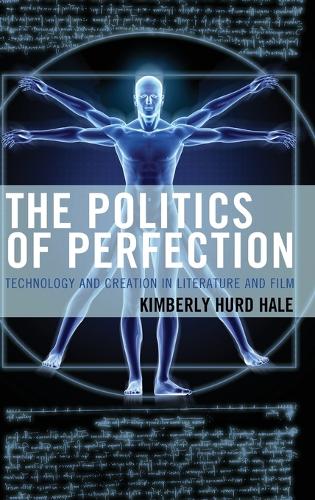
The Politics of Perfection: Technology and Creation in Literature and Film
(Hardback)
Publishing Details
The Politics of Perfection: Technology and Creation in Literature and Film
By (Author) Kimberly Hurd Hale
Bloomsbury Publishing PLC
Lexington Books
7th October 2016
United States
Classifications
Professional and Scholarly
Non Fiction
Literary studies: fiction, novelists and prose writers
Social and political philosophy
320.01
Physical Properties
Hardback
162
Width 159mm, Height 245mm, Spine 17mm
390g
Description
The Politics of Perfection: Technology and Creation in Literature and Film provides an exploration of the relationship between modern technological progress and classical liberalism. Each chapter provides a detailed analysis of a film or novel, including Fritz Langs Metropolis, Ridley Scotts Prometheus, Michael Gondrys Eternal Sunshine of the Spotless Mind, Kazuo Ishiguros Never Let Me Go, and Margaret Atwoods Oryx and Crake. These works of fiction are examined through the lens of political thinkers ranging from Plato to Hannah Arendt. The compatibility of classical liberalism and technology is questioned, using fiction as a window into Western societys views on politics, economics, religion, technology, and the family. This project explores the intersection between human nature and creation, particularly artificial intelligence and genetic engineering, using works of literature and film to access cultural concerns. Each of the works featured asks a question about the relationship between technology and creation. Technology also allows humanity to create new types of life in the forms of artificial intelligence and genetically engineered beings. This book studies works of literature and film as evidence of the contemporary unease with the progress of technology and its effect on the political realm.
Reviews
The Politics of Perfectionshows why andhowphilosophic thinking need not be confined to formal works of philosophy. Literature and film, when viewed with an eye towards important questions, provide essential fodder to explore life's most challenging unknowns. Hale's analysis helps her readers ask questions about whether or not there is a moral character to science and whether or not there is a human nature. In the end, she explains why it is necessary to ensure the moral character of our society by protecting the rights of the individual to life and liberty.
Working at the intersection of literature, film, and philosophy, Hale is able to show the ways artifacts of pop culture are imbued with philosophical insights and the ways political philosophy is both art and science. Her lucid prose makes this book accessible to students and teachers alike. By working through film and literature known well among the artifacts of popular culture, this book is likely to reach a conscientious public for whom technology is simultaneously a threat and a solution. -- Eduardo Velasquez, Independent Scholar
Author Bio
Kimberly Hurd Hale is assistant professor of politics at Coastal Carolina University.
